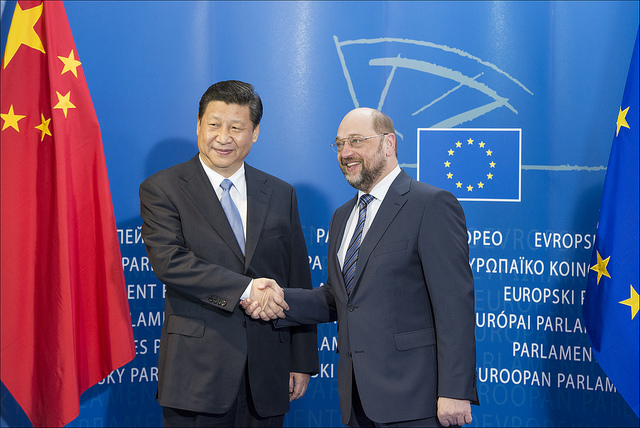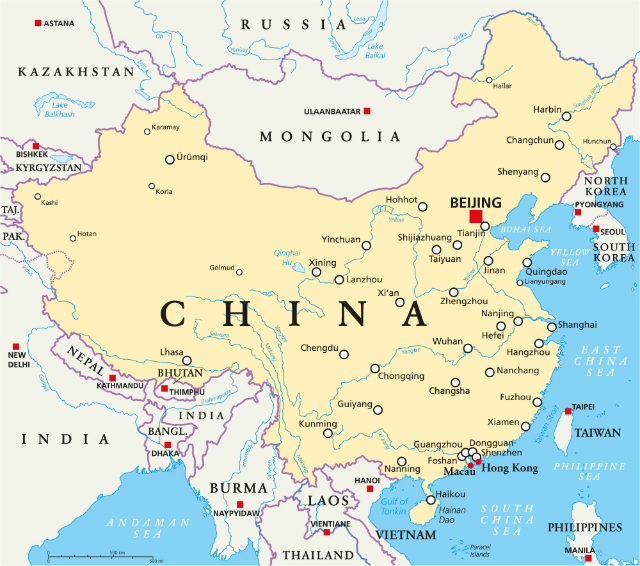China’s economic Then & Now
By peeling back to history, we know that since the 1980’s China’s economic system has been associated with being a ‘socialist market economy’. However, there has always been some form of denial by the Communist Party. The party rarely admits openly to the outside world that capitalists still run strong and deep into their way of life as well as the way they do business. The whole gameplay in today’s global economy with China’s presence is largely rooted to geopolitics. In saying that, the problem with China could be presented as follows;

Image via © European Union 2014 – European Parliament. EP President Martin Schulz welcomes Xi Jinping, President of the People’s Republic of China in the European Parliament in Brussels on the 31/03/2014
China’s challenges
Firstly, despite China’s market slowdown it is still an export-oriented economy which puts itself in a position of dependency. The thing is, even if China is known to have one of the largest currency reserves in the world or possessing the cheapest labor force; it still depends on and relies highly on income via global exports. China is well known to function as the industrial workshop of the world, till date. So, if there is a so-called ‘party crasher’ of this existing flow, then it would be detrimental to the health of its economy with other dependent sectors tumbling after.

Subsequently, China’s Geopolitical Imperatives are overridden by these three critical factors;
1) Maintenance of the internal unity of the Han Chinese regionsthat includes;
A line in China called the 15-inch isohyet, east of which more than 15 inches of rainfall each year and west of which the annual rainfall is less. The east and south of this line are called the Han regions.
2) Maintain control of the buffer regions which includes;
Tibet, Xinjiang province (home of the Muslim Uighurs), Inner Mongolia and Manchuria (a historical name given to the region north of North Korea that now consists of the Chinese provinces of Heilongjiang, Jilin, and Liaoning).














Leave A Comment